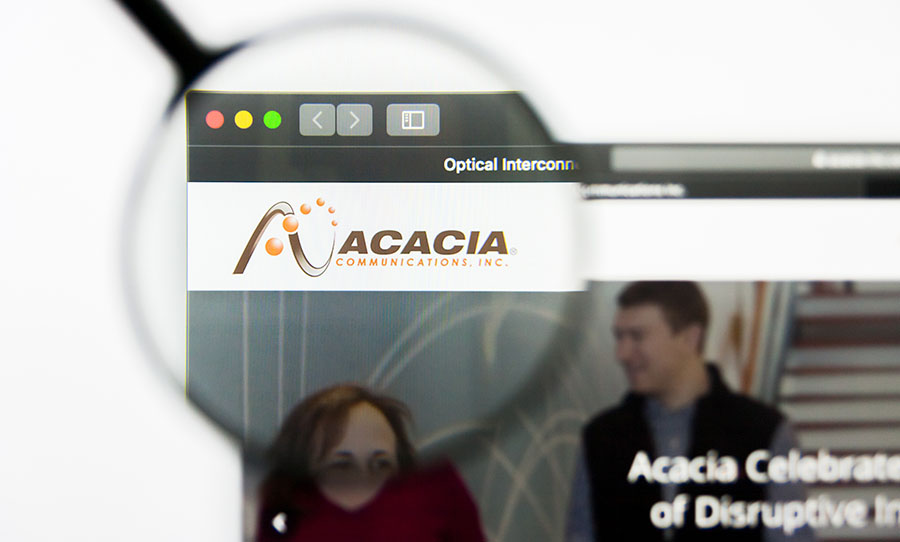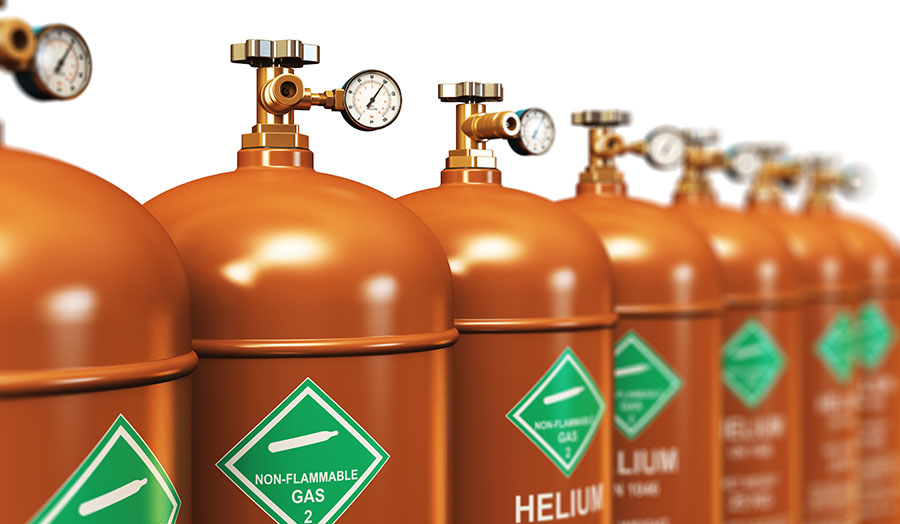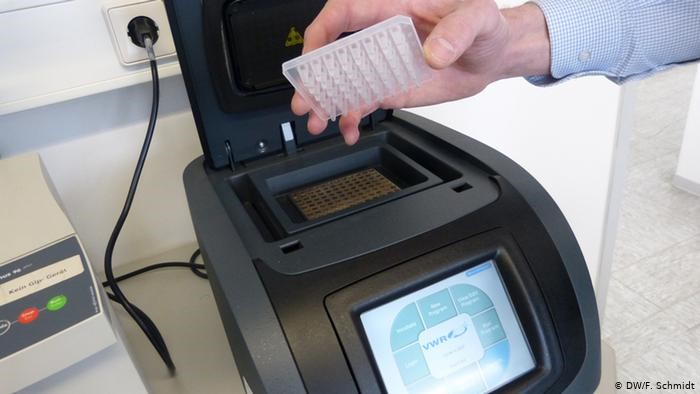Over 10% Yield and Discount to Value Means Strong Hold
Ares Capital Corp. (ARCC:NASDAQ, 15.56) has reported exceptional results this year, despite the impact of the Covid-related economic restrictions on small- and medium-sized businesses. In its latest quarterly results, late October, Ares reported 39 cents per share of net investment income (GAAP eps of $1.04), and a NAV of $16.48 per share. Earnings per share (both "core" earnings and GAAP) are actually up on 2019, and although the NAV remains down from year-end, it has appreciated significantly from $15.82 in the second quarter.
Ares management suggested that perhaps they had cut valuations aggressively in the first quarter, when the lock-downs and other restrictions were first introduced, reflected in NAV moving back up.
Though net investment income is a tad below the dividend of 40 cents, Ares has spillover income of 96 cents per share. This is income not yet distributed, and serves to support the dividend, given uneven income. In the third quarter, the company collected 99% of the interests due, suggesting strength in its portfolio companies.
The outlook is positive, given Ares' strength
Ares, the largest of the Business Development Companies, has a dominant platform and is well positioned to invest as deal activity picks up, as well as to support portfolio companies as needed. It has strong liquidity, more than $4.4 billion, with debt of $7.6 billion against total assets of almost $15 billion. Since Covid and the economic restrictions starting in March, there has been a significant increase in the size of companies looking for Ares financing, more than twice the size of a year ago. This reflects the difficulties companies have in obtaining traditional financing, but is a significant advantage for Ares as it can now lend to stronger companies.
After these very strong results, Ares has jumped from $13.80 to the current price, but it remains good value, trading at less than 10 times forward earnings, at a discount to NAV, and yielding 10.3%. We are definitely holding, though the stock is possibly short-term overbought.
Improvement at Gladstone as well
Gladstone Investment Corp. (GAIN:NASDAQ, 9.43) also reported good results. Net investment income (NII) of 15 cents per share was up from 11 cents in the second quarter, partly due to the resumption of full interest payments by some portfolio companies that had been adjusted earlier in the year due to economic difficulties.
The NAV was down a penny at $10.86. The balance sheet remains strong, though leverage increased in the latest period. Gladstone has $64 million available under its credit facility, so is in a position to make new investments. It has undistributed NII of 16 cents per share, equal to more than two quarters of dividend payments. Although the NII is significantly below the distribution, the company anticipates maintaining its current monthly distributions as well as the supplemental distributions from capital gains.
Gladstone's primary focus is on close monitoring of existing companies (though it did add one new investment during the quarter). Support consisted primarily of human resource and legal assistance rather than additional investments, as well as reducing the payments that were due in the second quarter to give some relief to the businesses. As interest of loans moves back up to pre-Covid levels, income will improve.
The stock is up from $8.20 at the end of October, and now trades at a 13% discount to NAV and yields 8.9% on its monthly dividend; special dividends from capital gains would bring the yield up to over 10.5%. Notwithstanding the very attractive yield, we are holding and will wait for a pullback to add to positions.
A rich valuation for Nestle, but moves improve performance
Nestle SA (NESN:VX; NSRGY:OTC, SF106.06) continues with the frenetic acquisition and disposal activity that has characterized the reign of CEO Mark Schneider since he took the helm at the beginning of 2017. Since then, he has consummated almost 50 transactions, representing about 12% of sales, a higher turnover than major competitors. The goal is to invest in assets with higher margins and higher growth than some traditional units. This includes looking at niche areas, including the "Health Science" division of medicinal and healthful foods, while disposing of some stodgy or out-of-fashion units as well as unrelated areas such as life insurance and skin care.
These moves have been largely successful, boosting Nestle's profit margin to around 13%, compared with major food companies of between 5% and 8%. Although sales this year are down on last, a result of Covid shutdowns affecting ice cream and bottled water, as well as the disposition of major assets (including U.S. confectionery), sales are improving again, and the company is on track to achieve forecast full-year sales growth of 3% or so. The growth is primarily from pet foods and convenience foods. Again, this year's performance is better than most competitors.
Moving into high-margin areas
Recent acquisitions include Freshly, a maker of healthful prepared foods for home delivery; and Aimmune, which has products for the treatment of peanut allergies, both with higher margins than traditional items.
The balance sheet is strong, with an AA- credit rating; and Nestle still holds 23% of L'Oréal, valued at about €37 billion, which could be sold. It aims to return about $20 billion to shareholders over the next three years, which will likely mean a continual of its buyback program as well as special dividends.
Nestle by most measures outperforms its competitors, with a higher ROE and better balance sheet. It has a steadily growing dividend, representing about 50% of free cash flow, and on today's stock price a yield of about 2.6%. Valuations however are higher than Nestle's historical norms. This is the lowest yield since 2010, and, at an estimate 25x, a higher price-to-earnings than average. So while we are holding Nestle as a core global investment, we are not buying at this level.
Disappointing results at Loews, but balance sheet still strong
Loews Corp. (L:NYSE, 42.30) has had a poor year, reporting a net loss of $835 million and net investment income at $23 million, down from $36 million a year ago and $110 million last quarter. The results are distorted by its Diamond Offshore unit, which entered bankruptcy at the beginning of the year, and Loews stopped consolidating its results and sold its holding. So the third-quarter loss was largely driven by the realized loss on sales of the offshore driller, while the year-ago comparison includes operating losses last year and not this year. Nonetheless, they were not good results, compounded by a decline in returns on its equity and limited partnership investment portfolio.
Its holding in CNA Insurance continues to do well, though the company is hampered by low interest rates. Other units had mostly poor results. This year, Loews Corp. supported financially its hotels dividend, though other units did not need additional capital from the parent. Loews is slowly reopening its hotels in various markets, though occupancy is still significantly below a year ago.
Loews resumed its share buybacks, after a pause, buying 5.4 million shares for almost $200 million in the third quarter. Though the results were weak, Loews continues to have a solid balance sheet, with $3.5 million in cash and investments (of which about 80% is in cash and cash equivalents).
Trading at high p/e, while discount narrows
The stock has moved strongly this month, up from $33.26 at the end of October, joining in the broad market rally for a change. At today's price, it is trading at 7 times cash flow and at a 33% discount to NAV (which is mostly composed of publicly traded stocks). That is still a higher than historical valuation; it traded at 4x cash flow at the end of 2018. Although its discount is larger than its historical norm, it is trading at its narrowest for the year—it was less than 50% of book in the first quarter—while the stock is at its high since early March.
As the economy slowly reopens, we expect recoveries in the hotel and pipeline businesses. That, and the still-wide discount and solid balance sheet, leads us to hold the stock, though again, we are not buying.
Originally posted on November 15, 2020.
Adrian Day, London-born and a graduate of the London School of Economics, heads the money management firm Adrian Day Asset Management, where he manages discretionary accounts in both global and resource areas. Day is also sub-adviser to the EuroPacific Gold Fund (EPGFX). His latest book is "Investing in Resources: How to Profit from the Outsized Potential and Avoid the Risks."
[NLINSERT]Disclosure:
1) Adrian Day: I, or members of my immediate household or family, own securities of the following companies mentioned in this article: Ares, Gladstone Investments. I personally am, or members of my immediate household or family are, paid by the following companies mentioned in this article: None. My company has a financial relationship with the following companies mentioned in this article: None. Funds controlled by Adrian Day Asset Management hold shares of the following companies mentioned in this article: All. I determined which companies would be included in this article based on my research and understanding of the sector.
2) The following companies mentioned in this article are billboard sponsors of Streetwise Reports: None. Click here for important disclosures about sponsor fees. The information provided above is for informational purposes only and is not a recommendation to buy or sell any security.
3) Statements and opinions expressed are the opinions of the author and not of Streetwise Reports or its officers. The author is wholly responsible for the validity of the statements. The author was not paid by Streetwise Reports for this article. Streetwise Reports was not paid by the author to publish or syndicate this article. Streetwise Reports requires contributing authors to disclose any shareholdings in, or economic relationships with, companies that they write about. Streetwise Reports relies upon the authors to accurately provide this information and Streetwise Reports has no means of verifying its accuracy.
4) This article does not constitute investment advice. Each reader is encouraged to consult with his or her individual financial professional and any action a reader takes as a result of information presented here is his or her own responsibility. By opening this page, each reader accepts and agrees to Streetwise Reports' terms of use and full legal disclaimer. This article is not a solicitation for investment. Streetwise Reports does not render general or specific investment advice and the information on Streetwise Reports should not be considered a recommendation to buy or sell any security. Streetwise Reports does not endorse or recommend the business, products, services or securities of any company mentioned on Streetwise Reports.
5) From time to time, Streetwise Reports LLC and its directors, officers, employees or members of their families, as well as persons interviewed for articles and interviews on the site, may have a long or short position in securities mentioned. Directors, officers, employees or members of their immediate families are prohibited from making purchases and/or sales of those securities in the open market or otherwise from the time of the decision to publish an article until three business days after the publication of the article. The foregoing prohibition does not apply to articles that in substance only restate previously published company releases.
Adrian Day's Global Analyst disclosures: Staff may have positions in securities discussed herein. Adrian Day is also President of Global Strategic Management (GSM), a registered investment advisor, and a separate company from this service. In his capacity as GSM president, Adrian Day may be buying or selling for clients securities recommended herein concurrently, before or after recommendations herein, and may be acting for clients in a manner contrary to recommendations herein. This is not a solicitation for GSM. Views herein are the editor's opinion and not fact. All information is believed to be correct, but its accuracy cannot be guaranteed. The owner and editor are not responsible for errors and omissions. © 2020.





























































